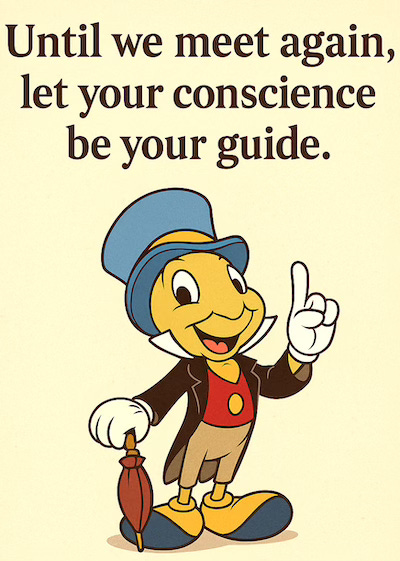The real evolution isn’t happening in your DNA anymore. It’s happening in your Wi-Fi signal.
A new framework from University of Maine researchers says your genes—the ancient hand-me-downs from thousands of ancestors—matter less than your zip code and your social media feed. Your neighborhood café, your Spotify queue, the Reddit holes you disappear into at midnight—all of these now shape your future more than your chromosomes ever will.
Timothy Waring, an economist who studies sustainability, and his co-conspirator Zachary Wood call their framework ETII—Evolutionary Transition in Inheritance and Individuality. It argues that humanity has crossed a line no species has ever crossed before. We’ve hacked evolution itself.
Think about the pace. It took us 7,500 years to genetically adapt to drinking milk. The printing press reshaped human literacy in two centuries. Television rewired social behavior in fifty years. Smartphones did it in fifteen. Each leap happens exponentially faster.
“Cultural evolution eats genetic evolution for breakfast,” Waring says. And this time, the math agrees.
Genes transfer vertically—parent to child. Culture spreads horizontally, like gossip on a global scale. One new battery design in Seoul, and São Paulo engineers have it tomorrow. A viral dance in Lagos, and London teens are copying it by lunch.
But this isn’t just about speed. Waring and Wood say we’re morphing into a superorganism—not metaphorically, but literally. No individual knows how to build a smartphone from scratch. Mining rare earths, designing chips, coding operating systems, coordinating supply chains—nobody does that alone. Yet collectively, we do it millions of times a day.
Same with medicine, cities, or even pencils. Each person carries one fragment of a shared intelligence. We’ve become neurons in a global brain.
There’s a price, though. Evolution always takes its cut.
We’ve traded self-sufficiency for interdependence. Your great-grandmother could grow food, sew clothes, and fix a broken chair. You can troubleshoot Wi-Fi and order takeout. Together, we’re powerful. Alone, we’re useless.
We’ve traded depth for speed. A medieval craftsman spent decades mastering one skill. You’ll change careers seven times. We keep updating our cultural software, but our biological hardware still runs on Stone Age firmware.
We’ve traded local wisdom for global noise. Our ancestors learned from the village elder. We learn from YouTube. The information is infinite but disconnected—no soil, no context, just data.
And we’ve traded resilience for complexity. If the power grid failed tomorrow, half the planet would be Googling “how to make fire.”
Cultural evolution doesn’t care about our wellbeing. It rewards what spreads. That means vaccines and misinformation evolve side by side. Social media doesn’t select for truth, it selects for clicks. We’re breeding attention, not wisdom.
Our new survival traits? Going viral, monetizing chaos, mastering the art of distraction. Darwin never saw TikTok coming.
Climate change proves the paradox. We have every tool—renewable tech, policy models, behavioral science—but no shared will to use them. Our superorganism can detect the problem in real time, simulate outcomes, and still decide to keep scrolling.
That’s Waring and Wood’s warning. Cultural evolution made us dominant, but it’s blind. It optimizes for immediacy, not foresight. It rewards whatever keeps the system humming, even if the song is terrible.
For the first time, we could theoretically guide this process. We understand our own evolutionary mechanism well enough to steer it—if we choose to. We could design social media that connects instead of addicting. Build economies that sustain instead of consume. Educate for wisdom, not test scores.
But that means overriding our built-in instincts. Evolution shaped us to care about small tribes, visible threats, and instant rewards. Now we need to care about invisible systems, global feedback loops, and the next century. It’s like running 21st-century software on Paleolithic hardware.
Still, there’s hope. If culture drives evolution, then we’re not stuck with fate—we’re writing it. Every idea shared, habit changed, or belief questioned alters the evolutionary code. You don’t inherit culture passively; you edit it.
The next human mutation won’t be a gene. It’ll be an idea.
We have three possible futures:
Fragmentation. Culture splinters into endless echo chambers until cooperation dies.
Convergence. Humanity fuses into one global hive mind, efficient but soulless.
Maturity. We learn to guide evolution consciously, balancing unity and individuality.
Which way we go depends on what we choose to amplify right now—not in our cells, but in our feeds. The pressure shaping us isn’t natural selection; it’s cultural selection. We’re programming evolution with every post, algorithm, and design choice.
Natural selection took billions of years to produce consciousness. Cultural evolution could transform—or erase—it in a few centuries. We’re the first species aware of our own evolution and possibly the last to experience it as individuals.
Your Wi-Fi doesn’t just move data. It carries the instructions for what humanity becomes next.
And the punchline? Unlike DNA, the password’s still changeable.




Kodo Sawaki, an abstemious Zen master, and George Carlin, a frequently shitfaced comedian, arrived at the same conclusion: group stupidity is the root of our problems.
Given that we evolved in tribes and our brains haven't really changed that much, enlightened interdependence isn't going to be first on the agenda for a few thousand years. Political cant tends to veer towards selfish individualism or groupthink collectivism -- both options are dyed by the authoritarian certainties and imperatives that have been hardwired for millennia.
There has always been people that cherish both individuality and unity, singularity and community, but an integrated vision tends to be dissonant with the predominant binary mindset. Who knows how it'll all pan out, but there will continue to be a problem with biological evolution trying to catch up with cultural evolution.
Excellent caveat, but I do fear that technology has outpaced our reptilian brains.
With the world accelerating to the right at this crucial time of climactic instability, as well as its refusal to regulate AI, it's more difficult for me to maintain your enviable optimism.